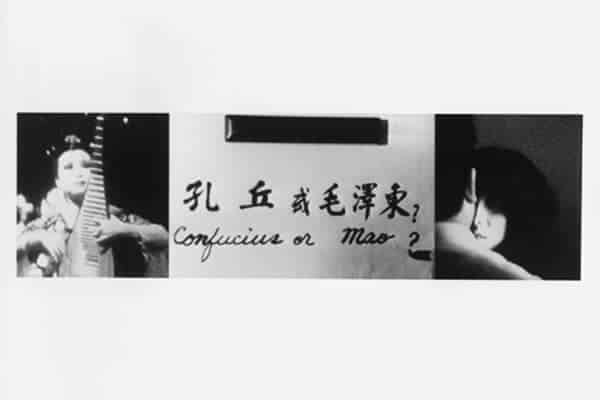The Juzo Itami-Nobuko Miyamoto (director-protagonist who also were husband and wife) duo has given us a number of delightful movies, including “Tampopo“, “The Funeral” and “Minbo no Onna“. “Supermarket Woman” follows in the same footsteps.
Buy This Title
Goro Kobayashi, owner of the Honest Goro supermarket, has been seeing his shop underperforming for years, and when a shiny new one, Bargains Galore, opens nearby, his situation becomes even worse. During an “inspection” of his new contender, he stumbles upon an old classmate, Hanako, who proceeds on explaining to him the perspective of the housewife regarding how a supermarket should work. Impressed with her input, and facing the possibility of bankruptcy, he hires her as head cashier, with the additional purpose of introducing new sales techniques and policies, particularly regarding the food section. Hanako soon takes over both customer service and the procedures of food selling, discovering a number of discrepancies which she tries to change. In the process, however, she angers the chiefs of the sections, and the clash seems inevitable.
Juzo Itami presents the whole concept of how a supermarket works in every detail, highlighting the fact that he has done his research prior to shooting the movie. Starting with the malpractices (repackaging, use of lights, barely visible prices, relabeling etc), continuing with the real issues (unsold fresh products, label misplacement, personnel relations) and finishing with the issues created by the market (the affect of the extreme competition on prices, the need for quantity being bigger than the one for quality, and the constant need for change according to the consumer needs) the analysis of the whole concept is as thorough as it is realistic. On a secondary level, the way the old “system” reacts to innovation could be also perceived as metaphoric critique on the Japanese movie industry, although I realize this may be a bit far-fetched on my part. Lastly, through a number of comments presented through the stories of various employees, Itami also seems to criticize capitalism.

However, as the film is a comedy, and a whimsical one for that matter, a number of these concepts are exaggerated, particularly through the fact that all of Hanako's “enemies” are eventually revealed to be crooks, either stealing or betraying Kobayashi's trust. This aspect, along with a certain element of romanticization of the particular business, strips the narrative of its realism, with especially the finale, which adds an element of action to the film, being completely out of place, and actually faults the overall essence of the movie. On the other hand, this approach adds much to the entertainment the movie offers.
The main medium of all the film's aesthetics is definitely Nobuko Miyamoto, who gives a truly energetic performance, running around for the majority of the movie, ready to service the customers and to fight the veterans for their attitude. Her performance is delightful in style, but also somewhat excessive, occasionally bordering on the theatric, while having to watch her run around for more than 2 hours becomes somewhat tiresome after a point. On the other hand, her reluctant relationship with Goro benefits the most by both her and Masahiko Tsugawa's restraint (in contrast to the majority of the rest of the film) with the two of them highlighting their chemistry in the best fashion.

Yonezo Maeda's cinematography focuses on presenting the setting of the supermarket with realism, while focusing on the dynamics of the client-employee relation. The brightness associated with supermarkets is also here, and adds even more to their realistic presentation, while also making the film easier to the eye. Akira Suzuki's editing induces the film with a fast pace through frequent cuts that seem to follow the speed of Miyamoto, in a rather fitting approach to the narrative's style.
“Supermarket Woman” has its faults, but through its realism, humor and Miyamoto's performance, ends up being quite entertaining.
















